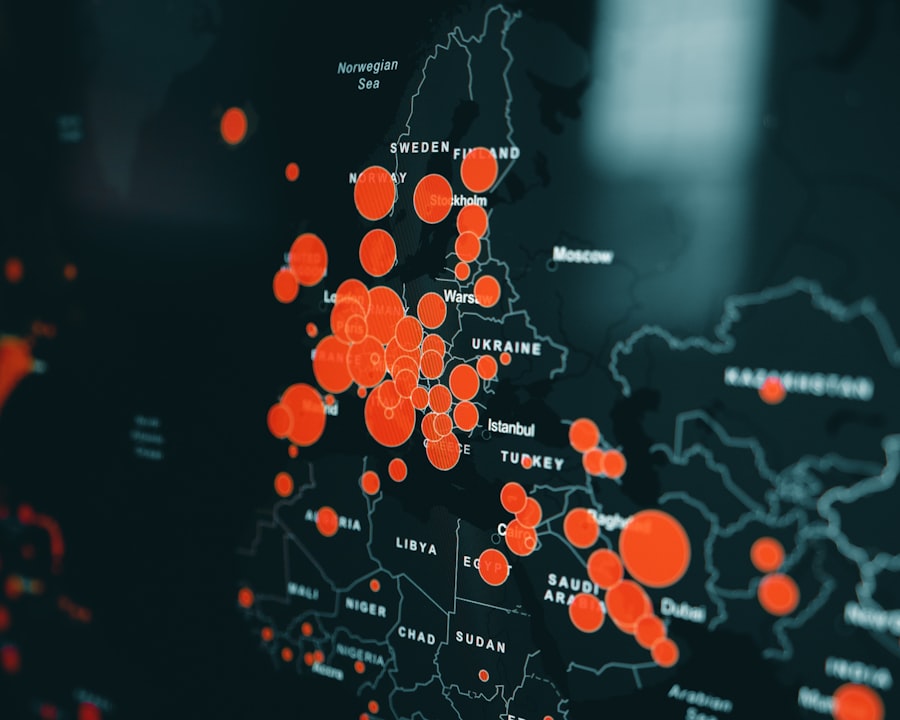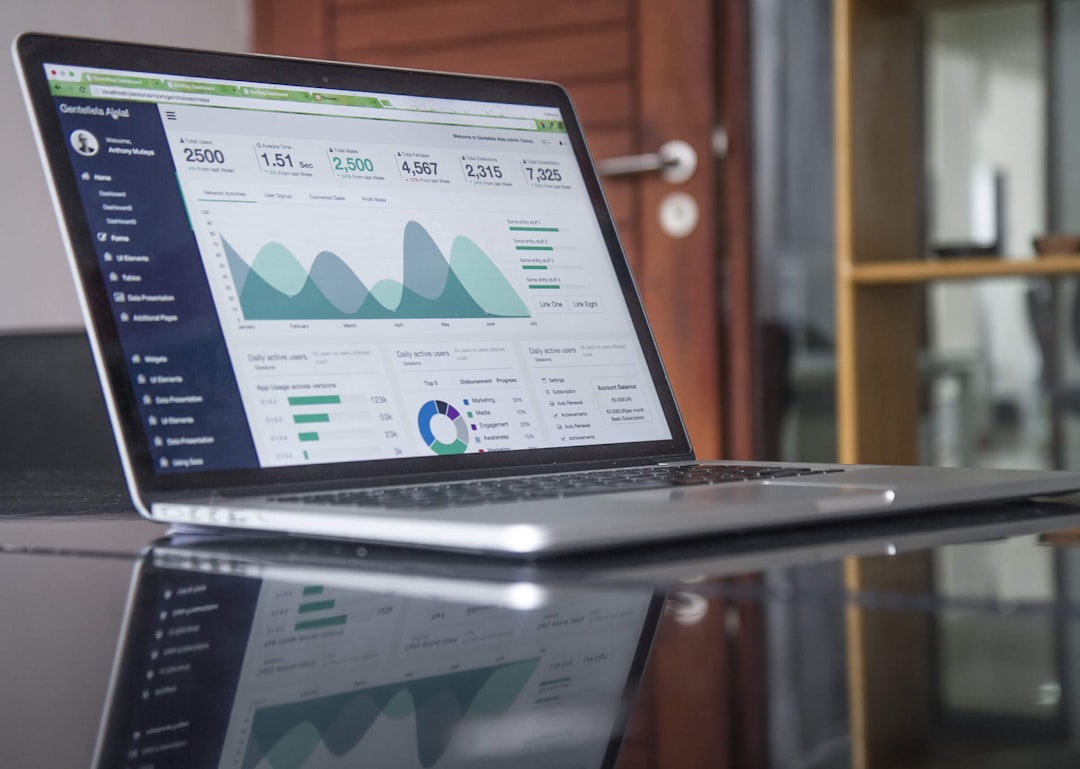CRM data governance is the systematic management of customer data within a Customer Relationship Management system. This process encompasses the establishment and implementation of policies, procedures, and standards for data collection, storage, and utilization. The primary objectives of CRM data governance are to ensure data quality, consistency, usability, and security, while maintaining compliance with relevant regulations.
In the current digital landscape, organizations accumulate substantial volumes of customer data from diverse sources, including online interactions, social media platforms, and transaction records. This data represents a valuable asset, offering insights into customer behaviors, preferences, and market trends. However, the absence of effective governance can result in data fragmentation, obsolescence, and unreliability, potentially leading to flawed decision-making and deteriorating customer relationships.
Implementing a comprehensive CRM data governance framework is essential for organizations to derive maximum value from their customer data and foster business growth. This approach enables companies to make informed decisions based on accurate and reliable information, enhance customer relationships through personalized interactions, and maintain compliance with data protection regulations. Effective CRM data governance also contributes to improved operational efficiency, reduced data management costs, and increased trust among customers and stakeholders.
Key Takeaways
- Effective CRM data governance is essential for maintaining data quality, consistency, and security within an organization.
- Data management and stewardship play a crucial role in ensuring that CRM data is accurate, reliable, and up-to-date.
- SMS-iT CRM’s robust data governance framework includes clear policies, procedures, and roles for managing and protecting CRM data.
- Key insights and best practices for effective data governance include establishing data standards, conducting regular audits, and providing ongoing training for staff.
- Technology plays a significant role in enhancing CRM data governance by automating data quality checks, implementing security measures, and enabling data integration across systems.
The Importance of Data Management and Stewardship in CRM
Data Management: The Foundation of CRM Data Governance
Data management involves the processes and technologies used to collect, store, and analyze customer data. This critical component of CRM data governance ensures that customer data is accurate, consistent, and secure, enabling organizations to make informed decisions and deliver personalized experiences to their customers.
Data Stewardship: Ensuring Responsible Data Use and Protection
Data stewardship focuses on the responsible use and protection of customer data. This involves assigning ownership and accountability for the quality and security of customer data, as well as implementing policies and controls to protect sensitive information from unauthorized access or misuse.
Benefits of Prioritizing Data Management and Stewardship in CRM
By prioritizing data management and stewardship in CRM, organizations can build trust with their customers, mitigate risks associated with data breaches, and drive better business outcomes. Proper data management involves establishing data quality standards, implementing data validation processes, and maintaining data hygiene practices to ensure that the information stored in the CRM system is accurate and up-to-date.
SMS-iT CRM’s Robust Data Governance Framework

At SMS-iT CRM, we understand the importance of implementing a robust data governance framework to help our clients effectively manage their customer data. Our approach to CRM data governance is centered around four key pillars: data quality, data security, data privacy, and data compliance. We believe that by focusing on these areas, organizations can ensure that their customer data is accurate, secure, and compliant with regulations, ultimately driving better business outcomes.
To address data quality, we provide our clients with tools and processes to validate and cleanse their customer data, ensuring that it is accurate and reliable for decision-making purposes. In terms of data security, we offer robust encryption and access control features to protect sensitive customer information from unauthorized access or cyber threats. Additionally, we help our clients navigate the complexities of data privacy regulations by providing features that enable them to obtain consent for data processing and manage customer preferences effectively.
Finally, we support our clients in maintaining compliance with industry-specific regulations such as GDPR or CCPA by providing features that enable them to track and audit data usage within the CRM system.
Key Insights and Best Practices for Effective Data Governance
In order to establish effective CRM data governance, organizations should consider adopting key insights and best practices that can help them maximize the value of their customer data. One important insight is the need to involve stakeholders from across the organization in the governance process. By engaging business leaders, IT professionals, and legal experts in the development of data governance policies and procedures, organizations can ensure that they are aligned with business objectives and regulatory requirements.
Another best practice for effective data governance is to establish clear roles and responsibilities for managing customer data. This includes appointing data stewards who are responsible for overseeing the quality and security of customer data within the CRM system. Additionally, organizations should invest in training programs to educate employees on the importance of data governance and provide them with the skills and knowledge needed to adhere to governance policies.
Furthermore, organizations should leverage technology solutions that can automate data governance processes and provide insights into the quality and usage of customer data. By implementing tools for data validation, cleansing, and monitoring, organizations can streamline their governance efforts and ensure that their CRM system contains accurate and reliable customer information.
The Role of Technology in Enhancing CRM Data Governance
Technology plays a crucial role in enhancing CRM data governance by providing organizations with the tools and capabilities needed to manage their customer data effectively. One way technology enhances CRM data governance is through the use of advanced analytics and reporting capabilities that enable organizations to gain insights into the quality and usage of their customer data. By leveraging these insights, organizations can identify areas for improvement and make informed decisions about how to optimize their data governance processes.
Additionally, technology solutions such as data validation tools and automated workflows can help organizations streamline their data governance efforts by reducing manual effort and human error. These tools enable organizations to validate the accuracy of customer data at the point of entry into the CRM system, ensuring that only high-quality information is stored. Furthermore, technology can enhance CRM data governance by providing organizations with robust security features that protect sensitive customer information from unauthorized access or cyber threats.
By implementing encryption, access controls, and monitoring capabilities within the CRM system, organizations can ensure that their customer data remains secure and compliant with industry regulations.
Overcoming Challenges and Pitfalls in CRM Data Governance

Alignment Challenges
One common obstacle is the lack of alignment between business objectives and data governance policies. Organizations may struggle to develop governance processes that align with their specific business needs or fail to communicate the value of governance efforts to key stakeholders.
Data Management Complexities
Another challenge in CRM data governance is the complexity of managing large volumes of customer data from various sources. Organizations may struggle to maintain the quality and consistency of this data as it enters the CRM system from different channels. Furthermore, ensuring compliance with evolving regulations such as GDPR or CCPA can be a significant challenge for organizations operating in multiple jurisdictions.
Overcoming Challenges through Collaboration
To overcome these challenges, organizations should prioritize communication and collaboration between business leaders, IT professionals, legal experts, and other stakeholders involved in the governance process. By aligning on common objectives and developing a shared understanding of the value of effective data governance, organizations can overcome resistance to change and drive better outcomes for their CRM initiatives.
The Future of CRM Data Governance: Trends and Predictions
Looking ahead, several trends are shaping the future of CRM data governance and are likely to have a significant impact on how organizations manage their customer data. One trend is the increasing focus on ethical data use and privacy. As consumers become more aware of how their personal information is being used by organizations, there is a growing demand for transparent and ethical practices around data governance.
Organizations will need to prioritize privacy by design principles and implement technologies that enable them to obtain consent for data processing effectively. Another trend shaping the future of CRM data governance is the rise of artificial intelligence (AI) and machine learning (ML) technologies. These technologies have the potential to revolutionize how organizations manage their customer data by automating tasks such as data validation, cleansing, and predictive analytics.
By leveraging AI and ML capabilities within their CRM systems, organizations can improve the accuracy and reliability of their customer data while reducing manual effort. Furthermore, as regulations around customer data continue to evolve, organizations will need to adapt their CRM data governance frameworks to ensure compliance with new requirements. This will require ongoing investment in technologies that enable organizations to track and audit data usage within their CRM systems effectively.
In conclusion, effective CRM data governance is essential for organizations to maximize the value of their customer data and drive better business outcomes. By prioritizing key insights and best practices for effective data governance, leveraging technology solutions to enhance governance efforts, overcoming challenges through communication and collaboration, and staying ahead of emerging trends in CRM data governance, organizations can position themselves for success in managing their customer relationships effectively.
If you’re interested in learning more about SMS-iT CRM software for small businesses, you should check out the article “SMS-iT CRM Software for Small Businesses.” This article provides valuable insights into how SMS-iT CRM can benefit small businesses and improve their customer relationship management. It’s a great follow-up read to gain a deeper understanding of the robust data management and stewardship framework discussed in The Future of CRM Data Governance article.
FAQs
What is CRM data governance?
CRM data governance refers to the processes and policies put in place to ensure the quality, security, and compliance of customer relationship management (CRM) data within an organization. It involves managing and stewarding the data to ensure its accuracy, consistency, and reliability.
Why is CRM data governance important?
CRM data governance is important because it helps organizations maintain the quality and integrity of their customer data, which is crucial for making informed business decisions, providing excellent customer service, and ensuring compliance with data protection regulations.
What are the key components of a robust CRM data management and stewardship framework?
A robust CRM data management and stewardship framework includes components such as data quality assessment, data cleansing and enrichment, data security measures, data privacy compliance, data governance policies, and data stewardship roles and responsibilities.
How does SMS-iT CRM approach data governance and stewardship?
SMS-iT CRM approaches data governance and stewardship by implementing a comprehensive framework that includes data quality monitoring, automated data cleansing and enrichment processes, role-based access controls, encryption and data masking, compliance with data protection regulations, and clear data governance policies.
What are the benefits of implementing a robust CRM data management and stewardship framework?
The benefits of implementing a robust CRM data management and stewardship framework include improved data accuracy and consistency, enhanced data security and privacy, better decision-making based on reliable data, reduced compliance risks, and increased trust and satisfaction among customers.







